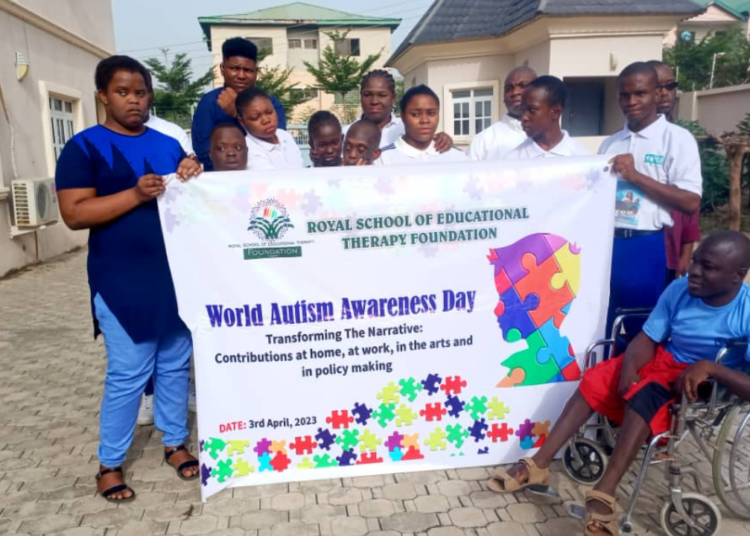As Nigeria joins the rest of the world to mark this year’s World Autism Awareness Month, stakeholders have called on the federal government to introduce policies that will eradicate the discrimination against autistic people in society.
Some psychologists and behavioral therapists who spoke at an awareness campaign organised by the Royal School of Educational Therapy Foundation in Abuja specifically advised the government to create policies that will allow for equity and access to education for autistic children.
The head teacher of Royal School of Educational Therapy Foundation, Uzo Kachi, who decried the low rate of autism awareness, stressed that this was largely responsible for the continued discrimination faced by persons on the autism spectrum.
“Most people do not know about the disorder. So when they see them displaying some behaviors, they feel they can’t be allowed to mingle with other children even in schools, churches, and hospitals.
“So, the preaching of inclusion is actually to get them involved. Let people know about what autism is all about and know that these children can still thrive in society.
So to include them in the workplace, include them in our homes, even in the hospitals and everywhere,” he said.
On areas needing urgent government intervention, the head teacher said, “Like the theme of the year, ‘Changing the narrative.’ We get a contribution, both from the home and the workplace and policies. We want the government to create policies that will enable inclusion, equity, and access, especially for education.
“Many of them are kept out and are not able to access education like other children. So our appeal is for the government to draft out policies. For example, like the Royal School of Educational Therapy, where we are staying right now, we pay heavily for the space. If the government can give organisations like ours the opportunity to own land, give us access to land, then we can be able to do more in society.”
A behavioral therapist who spoke at the event, Adeshina Rachel, noted that discrimination and stigmatisation have become major issues faced by autistic people and their caregivers, and appealed to stakeholders to focus on awareness of this particular way of life.
“When you make people aware of this particular way of life, then they tend to understand more what you’re talking about. Understanding leads to compassion. You then know that it’s not their fault that they are the way they are.
“From compassion, you tend to respect them, and from the respect, you accept their acceptance, and then from acceptance to inclusion and they are being included into society. So basically, that’s why we are taking the first step of awareness,” she said.
Also, a parent at the school, Engr. Attah Abu, asked guardians to opt for early interventions for their wards, instead of seeking spiritual help for children with autism or other disabilities.
He also asked the government to give subvention to parents with children with special needs to ease their financial burden and help them avail their children of the special education they require.
We’ve got the edge. Get real-time reports, breaking scoops, and exclusive angles delivered straight to your phone. Don’t settle for stale news. Join LEADERSHIP NEWS on WhatsApp for 24/7 updates →
Join Our WhatsApp Channel










